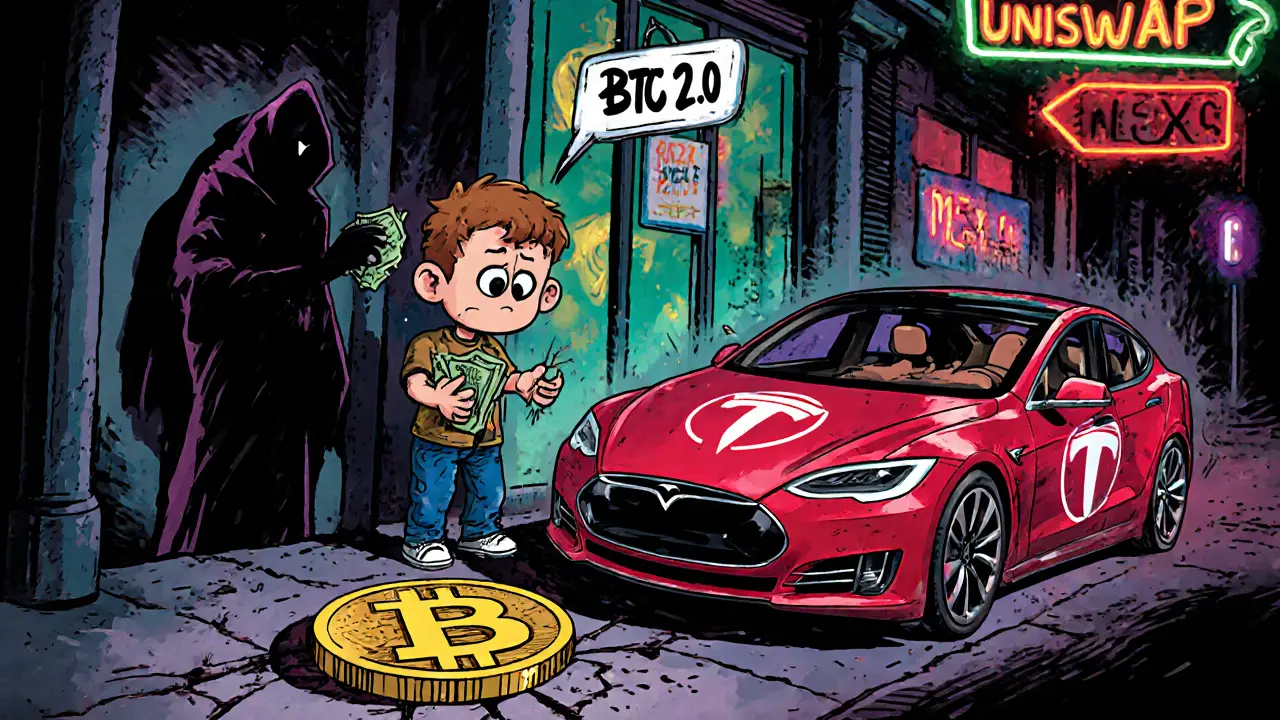Crypto Scam: How to Spot Fake Projects and Avoid Losing Your Crypto
When you hear crypto scam, a deceptive scheme designed to steal cryptocurrency from unsuspecting users. Also known as crypto fraud, it’s not just about hacked wallets—it’s about tricking you into giving up your keys, your funds, or your trust. Every week, someone loses money because they clicked a link, joined a fake Discord, or trusted a project with no team and no code. You don’t need to be a tech expert to get burned. All you need is to be trusting—and that’s exactly what scammers count on.
Fake exchange, a website that looks like Binance or Uniswap but isn’t real is one of the most common traps. Look at EvmoSwap—it copied the name of Evmos to fool people into thinking it was legitimate. Zero trading volume. No audits. No real users. Just a landing page and a wallet address. Same with SheepDex: claims to be a decentralized exchange, but no trades ever happened. These aren’t bugs. They’re designed to disappear after you send crypto in.
Scam token, a coin with no utility, no team, and no future is another major threat. AINN surged to $3, then crashed to $0.0097 because it had no AI tech, no whitepaper, and no developers. CHEEPEPE and CHAR had zero liquidity and vanished after their pump. These aren’t investments—they’re gambling chips with no table. And when the last person sells, the price hits zero. No recovery. No refund.
And then there’s the phishing attack, a fake login page or airdrop link that steals your private key. You think you’re claiming RACA or ART tokens, but you’re actually signing a transaction that sends everything in your wallet to a hacker. No one emails you asking for your seed phrase. No legitimate airdrop asks you to connect your wallet to a random site. If it feels too easy, it’s a trap.
These scams don’t happen because you’re dumb. They happen because they’re well-made. Fake websites copy real logos. Scammers use real names from real projects. They post fake testimonials. They even hire people to spam Discord with “I just claimed 10,000 tokens!”—all bots. The only way to stay safe is to slow down. Check the official website. Look at the contract address on Etherscan. Google the project name + “scam.” If no one’s talking about it, that’s a red flag.
You don’t need to chase every new airdrop or meme coin. The best crypto strategy isn’t about finding the next big thing—it’s about not losing what you already have. The posts below show you exactly how these scams play out: from fake exchanges like EvmoSwap and SheepDex, to tokens like AINN and CHEEPEPE that collapsed overnight, to fake airdrops that steal your wallet. Each one is a case study in what not to do. Learn from them. Save yourself the loss.
